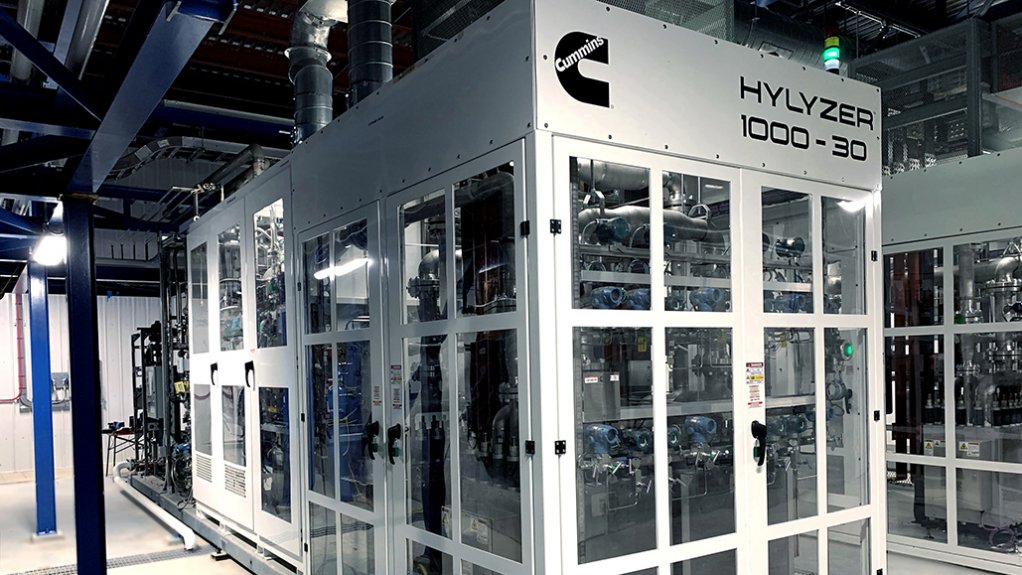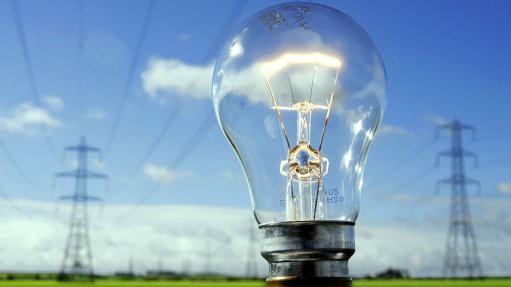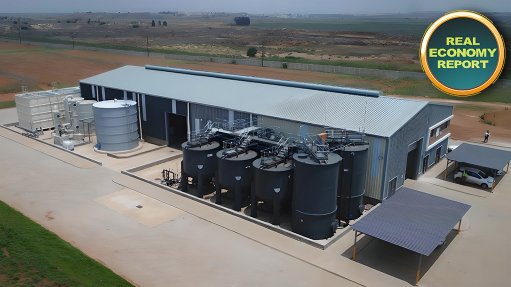Hydrogen implementation remains limited



ALAN ZHAO A nuanced approach to hydrogen production is needed in the low-carbon energy transition
EVERY TOOL COUNTS No single technology or approach will be the “magic solution” to the energy transition
Following global trends, discussions in South Africa on hydrogen, its production and use have gained momentum, although actual implementation remains limited, says power technology provider Cummins Africa and Middle East hydrogen and fuel cell business director Alan Zhao.
Aligned with other countries, South Africa has been exploring hydrogen as a potential solution for power generation and mobility applications.
Zhao expects that there will be a significant increase in discourse regarding hydrogen use in various applications this year, with power generation, mobility and fuel cell applications at the forefront of these conversations.
Fuel cells, powered by hydrogen, are being explored as a potential solution for South Africa's ongoing power supply problem. They are also being considered for mobility and equipment applications, including mining equipment.
He notes that the emphasis must shift from discussing hydrogen to implementing practical solutions this year, as while discussions have been productive, tangible action has been lacking.
However, he acknowledges that implementation in 2024 may be challenging, as this transition involves evaluating how specific businesses can benefit from hydrogen, as well as addressing social and political aspects that are integral to the adoption of such technology.
Availability
The availability of hydrogen remains a significant hurdle, but it remains important with increasing attention on energy transition, says Zhao.
Hydrogen is categorised into various colours with the three most commonly referred to being grey, blue and green hydrogen.
Grey hydrogen is produced from traditional fuel sources, such as natural gas or methane, using steam methane reformation without capturing the greenhouse-gases produced in the process. Green hydrogen is produced from water using an electrolysis process that is powered by renewable energy, while blue hydrogen uses the same process as grey hydrogen, but includes a carbon capture element to reduce carbon emissions.
Zhao asserts that all forms of hydrogen can be used interchangeably, provided they meet the same purity standards, but emphasises that the production of different types of hydrogen has varying impacts on climate change.
While grey hydrogen can currently be produced at a lower cost than green hydrogen, he highlights the environmental impact, noting the need to evaluate the “real cost” of hydrogen of different colours.
The production of green and blue hydrogen in South Africa is in the nascent stage, but the production of grey hydrogen is more established and is primarily used to support foundational applications and market segments, he adds.
Zhao calls for policies that equalise or balance these factors, potentially through subsidies or taxes that reflect the environmental impact of different hydrogen production methods.
He cites the US Inflation Reduction Act as an example of such a policy, which offers a tax credit of up to $3/kg of low-carbon, or green, hydrogen produced.
While acknowledging that such policies may not be a perfect reflection of the environmental impact, Zhao says it can aid the industry’s development and stresses the importance of a nuanced approach to hydrogen production in the low-carbon energy transition.
Implementation Hurdles
Zhao notes that the introduction of fuel cell applications presents obstacles, in addition to technology and capital cost challenges, as fuel cell applications are not as economically viable as ones that use oil, gas and coal.
“It’s not as mature as everybody thinks it is or at least not as widely deployed as internal combustion engines that use diesel or natural gas, which have been around for a long time.”
He adds that fuel cells using hydrogen for applications such as buses, mining equipment and even for power generation are a “very new” element.
Further, many considerations need to be taken into account and addressed from a regulatory perspective.
As electricity in South Africa is regulated by government, factors about regulating power suppliers emerge, “including regulations for those who have merged into the electricity grid, or microgrid solutions or user independent power producers . . . the framework is not as comprehensive as those for power plants”.
Given these challenges, Zhao emphasises that while continuous discussions and debates pushing for scalable deployment are necessary, the only way to progress with new technology is to “do something, learn, and do it again”.
This process is key to overcoming the hurdles of hydrogen deployment, he argues.
He emphasises the importance of collaboration in addressing the energy transition and the role that all forms of energy play in making the transition without compromising on meeting energy demand.
Zhao adds that the energy transition should be viewed as an ecosystem, involving various production and consumption methods.
Further, the just energy transition should not hinder progress, and no single technology or approach will be the “magic solution” to the energy transition, he explains.
He, therefore, urges the finding of proactive solutions, asserting that “the real race is against time, not against other stakeholders that are working towards the same goal”, as focusing on competition detracts from the urgency of addressing climate change and energy-related challenges.
Comments
Press Office
Announcements
What's On
Subscribe to improve your user experience...
Option 1 (equivalent of R125 a month):
Receive a weekly copy of Creamer Media's Engineering News & Mining Weekly magazine
(print copy for those in South Africa and e-magazine for those outside of South Africa)
Receive daily email newsletters
Access to full search results
Access archive of magazine back copies
Access to Projects in Progress
Access to ONE Research Report of your choice in PDF format
Option 2 (equivalent of R375 a month):
All benefits from Option 1
PLUS
Access to Creamer Media's Research Channel Africa for ALL Research Reports, in PDF format, on various industrial and mining sectors
including Electricity; Water; Energy Transition; Hydrogen; Roads, Rail and Ports; Coal; Gold; Platinum; Battery Metals; etc.
Already a subscriber?
Forgotten your password?
Receive weekly copy of Creamer Media's Engineering News & Mining Weekly magazine (print copy for those in South Africa and e-magazine for those outside of South Africa)
➕
Recieve daily email newsletters
➕
Access to full search results
➕
Access archive of magazine back copies
➕
Access to Projects in Progress
➕
Access to ONE Research Report of your choice in PDF format
RESEARCH CHANNEL AFRICA
R4500 (equivalent of R375 a month)
SUBSCRIBEAll benefits from Option 1
➕
Access to Creamer Media's Research Channel Africa for ALL Research Reports on various industrial and mining sectors, in PDF format, including on:
Electricity
➕
Water
➕
Energy Transition
➕
Hydrogen
➕
Roads, Rail and Ports
➕
Coal
➕
Gold
➕
Platinum
➕
Battery Metals
➕
etc.
Receive all benefits from Option 1 or Option 2 delivered to numerous people at your company
➕
Multiple User names and Passwords for simultaneous log-ins
➕
Intranet integration access to all in your organisation



















